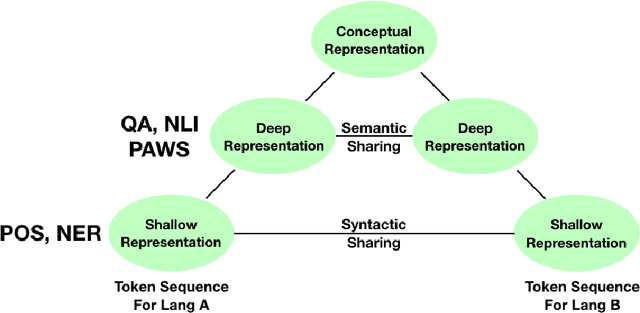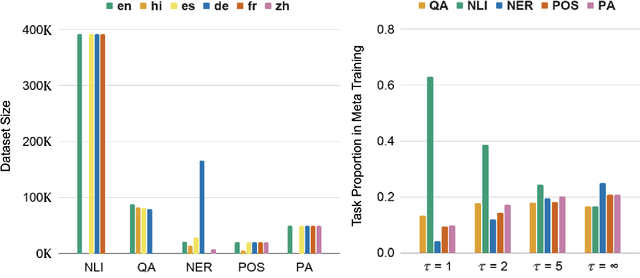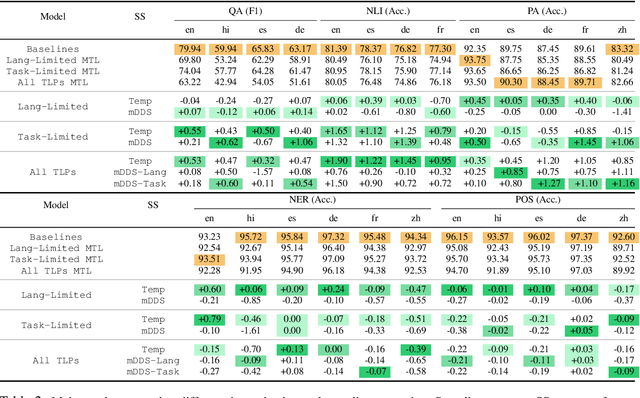Meta-Learning for Effective Multi-task and Multilingual Modelling
Paper and Code
Jan 27, 2021



Natural language processing (NLP) tasks (e.g. question-answering in English) benefit from knowledge of other tasks (e.g. named entity recognition in English) and knowledge of other languages (e.g. question-answering in Spanish). Such shared representations are typically learned in isolation, either across tasks or across languages. In this work, we propose a meta-learning approach to learn the interactions between both tasks and languages. We also investigate the role of different sampling strategies used during meta-learning. We present experiments on five different tasks and six different languages from the XTREME multilingual benchmark dataset. Our meta-learned model clearly improves in performance compared to competitive baseline models that also include multi-task baselines. We also present zero-shot evaluations on unseen target languages to demonstrate the utility of our proposed model.
 Add to Chrome
Add to Chrome Add to Firefox
Add to Firefox Add to Edge
Add to Edge